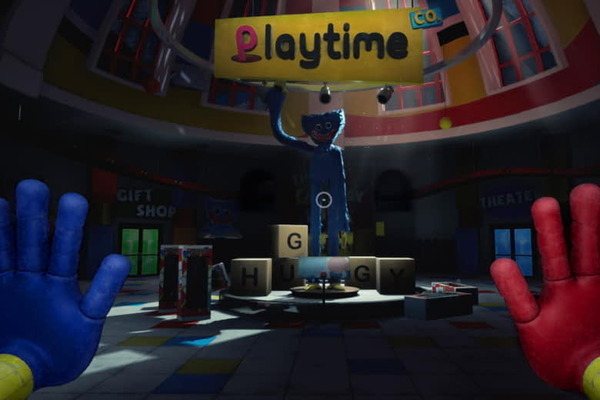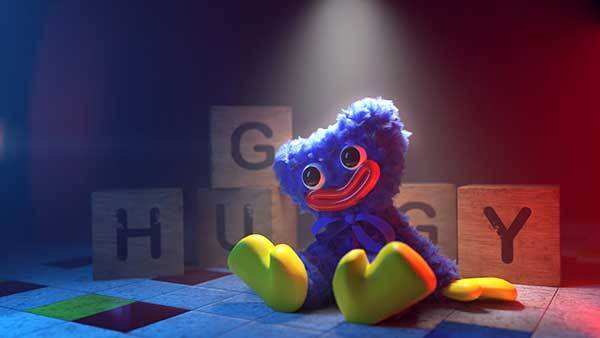
Poppy Playtime
Popular Now
The Dark Side of Poppy Playtime: An In-Depth Analysis of Its Psychological Themes and Their Impact on Players
Introduction
Poppy Playtime is a game that has captivated audiences with its eerie atmosphere, compelling gameplay, and chilling storyline. Since its release in 2021, it has quickly become a prominent title in the horror and indie gaming community. Set in an abandoned toy factory, players take on the role of a former employee investigating the mysterious disappearances of staff members and the eerie occurrences inside the factory. However, beneath the surface of jump scares and creepy toys, there lies a more profound issue: the psychological themes that the game explores, particularly the relationship between innocence, trust, and horror.
In this article, we will delve deep into one specific aspect of Poppy Playtime — the psychological manipulation and conditioning of players through narrative, design, and gameplay mechanics. We will explore how the game uses psychological tactics to make players feel a sense of dread and discomfort, ultimately transforming a seemingly innocent environment into something deeply disturbing. By the end, you will understand how Poppy Playtime cleverly manipulates the player's psyche and why it resonates so strongly with its audience.
The Psychological Approach of Poppy Playtime
The Influence of Childhood Innocence on Horror
At its core, Poppy Playtime operates by manipulating the concept of childhood innocence, something that most players have an inherent connection with. The setting of the game — an abandoned toy factory — plays a significant role in this. Toys, objects traditionally associated with joy and comfort, are turned into nightmarish figures that prey on the players’ emotional vulnerability. This contrast of innocence and terror creates an unsettling experience, where players are forced to confront their childhood memories and the realization that something meant to bring comfort is now a source of fear.
The game starts innocently enough, with players encountering toys that should bring nostalgia and joy. However, as the narrative progresses, these toys become twisted versions of what they once were, fostering a sense of betrayal. This shift plays on the fear of the unknown and the uncomfortable feeling that something once considered safe has been corrupted. This connection to childhood innocence is central to the game’s emotional manipulation and is effective in amplifying fear.
Conditioning Through Puzzle Design
Another critical psychological tool used by Poppy Playtime is its puzzle design. While players must solve puzzles to progress, the design of these puzzles is intentionally disorienting and challenging. The puzzles often require players to interact with machinery and objects in ways that are not immediately intuitive, forcing them to think outside the box. This creates a sense of anxiety and unease, as players are constantly battling not only the puzzles but also the looming threat of what might be lurking around the corner.
The combination of complex puzzles and time-based challenges heightens the psychological pressure on players. In horror games, when players are tasked with solving puzzles while being pursued by a relentless enemy, the stakes are raised, and the stress becomes a core element of the experience. This kind of conditioning, where players are made to feel pressure both from the environment and the gameplay mechanics, reinforces the theme of horror being inescapable.
The Role of the Huggy Wuggy Character
The Evolution of Huggy Wuggy as a Psychological Tool
Among the many characters that players encounter in Poppy Playtime, none are more iconic — or terrifying — than Huggy Wuggy. The giant blue toy with unnerving, human-like eyes and an unsettling smile is a key part of the game’s psychological manipulation. Initially, Huggy Wuggy appears as a cute, toy-like creature, an embodiment of innocence. However, as the game progresses, this figure evolves into a nightmarish entity that stalks and attacks the player, subverting the player’s expectations and sense of safety.
This gradual transformation of Huggy Wuggy from an innocent toy into a terrifying monster is an effective psychological tactic. It taps into the fear of the familiar becoming unfamiliar and the violation of trust. As players continue to solve puzzles and explore the factory, they are met with increasingly disturbing instances involving Huggy Wuggy, heightening their anxiety and uncertainty.
Fear of Abandonment and Isolation
Beyond the physical appearance of Huggy Wuggy, there is a deeper psychological theme at play. Huggy Wuggy represents the player's fear of abandonment and isolation. As the protagonist ventures through the factory alone, the feeling of being lost and isolated grows stronger. Huggy Wuggy, in his pursuit of the player, symbolizes this fear — a relentless force that can never be escaped.
The feeling of being watched and stalked creates a constant sense of tension, as players never know when or where Huggy Wuggy will strike. This is compounded by the fact that the factory is deserted, further amplifying the sense of loneliness and despair. This manipulation of the player’s emotions serves to create an overwhelming sense of fear, making them question their safety and their own ability to escape.
The Factory as a Psychological Labyrinth
The Factory as a Metaphor for the Mind
The abandoned factory setting of Poppy Playtime is more than just a creepy backdrop — it’s a metaphor for the mind, specifically the subconscious. As players navigate the factory’s maze-like corridors, they encounter obstacles and enemies that seem to appear from nowhere. This mirrors the experience of navigating one’s own subconscious mind, where thoughts and emotions often feel random and uncontrollable.
The design of the factory contributes to this feeling. Rooms are often dark, disorienting, and full of broken machinery, representing the chaotic and fragmented nature of the subconscious. The winding paths and sudden jumps in tension are reminiscent of how the mind can quickly shift from calm to chaotic, especially when dealing with unresolved emotions or trauma.
The Psychological Impact of Environmental Storytelling
The way the factory is presented tells a story in itself. As players venture deeper into the game, they uncover notes and clues that reveal the factory’s dark past. These clues suggest that the factory once was a place of great joy, but over time, it turned into a site of despair and horror. This transformation is not just physical; it is deeply psychological. Players are forced to confront the implications of the factory's fall from grace, mirroring how memories of childhood innocence can be corrupted by dark experiences.
Environmental storytelling is an effective way to manipulate players psychologically. It allows them to uncover hidden truths about the game world at their own pace, while also creating an atmosphere of constant unease. The deeper players go into the factory, the more they realize they may never fully understand what happened, adding to the feelings of confusion and terror.
The Relationship Between the Player and the Puzzles
The Role of Control in Fear
One of the most important psychological aspects of Poppy Playtime is its manipulation of control. As players work through puzzles, they are presented with moments where they must make decisions quickly, sometimes under duress. The puzzles themselves are a test of both intelligence and dexterity, but they also challenge the player's ability to retain control in an environment that is intentionally designed to disorient and provoke fear.
By offering players a false sense of control — they can solve puzzles, they can run from enemies — the game makes the eventual loss of control more impactful. The more the player becomes involved in the puzzle-solving process, the more vulnerable they feel when things inevitably go wrong, and they face the terrifying reality that control was never truly theirs to begin with.
Rewarding Progress Through Increased Dread
The game’s use of reward and progression also plays into the psychological manipulation of the player. As players solve puzzles and progress through the factory, they are given small rewards in the form of new tools and abilities. However, this progress is always accompanied by an increase in the level of dread. The deeper players go into the factory, the more dangerous and psychologically taxing the puzzles become. This cyclical design creates a constant tension: each victory feels temporary and fleeting, only to be replaced by a new challenge that feels even more impossible than the last.
This progression system serves as both a motivating factor and a source of anxiety. The more players invest in solving the puzzles, the more invested they become in the fear and horror that accompanies each new revelation.
The Player's Emotional Journey: From Curiosity to Terror
The Subtle Shift in Emotional Engagement
At the start of Poppy Playtime, players are driven by curiosity. The idea of exploring an abandoned toy factory piques interest, and the early gameplay feels relatively safe. However, as players delve deeper, the emotional tone of the game shifts dramatically. The atmosphere becomes darker, the puzzles more complicated, and the enemies more aggressive. What was once a journey of exploration turns into a fight for survival.
This emotional shift is a brilliant manipulation of player expectations. The initial curiosity that drives the player soon transforms into a visceral sense of dread, keeping them on edge and forcing them to confront their growing fear. The game cleverly withholds information, keeping players in suspense and amplifying their emotional journey from intrigue to terror.
The Building of Empathy and Fear
An essential component of this emotional journey is the game's ability to create empathy for the protagonist. Players are made to feel invested in the story, especially as they uncover more about the dark history of the factory. This connection to the protagonist makes the eventual terror even more impactful. As players experience fear alongside the protagonist, they are made to feel as though they too are trapped in the nightmare, further intensifying the psychological manipulation at play.
The Final Act: Confronting the Horror
The Climax of Psychological Tension
In the final act of Poppy Playtime, all of the psychological manipulation reaches its climax. The tension built over the course of the game reaches a boiling point, as players face their worst fears head-on. The factory, once a place of mystery, now becomes a battleground for survival. Huggy Wuggy and other terrifying figures chase the player, forcing them into a race against time and a test of both wit and willpower.
The culmination of the player’s emotional journey is marked by an intense confrontation with the game’s horrors. By this point, players are not just solving puzzles — they are fighting for their lives. This final act not only serves as the game’s most intense sequence but also reinforces the psychological themes that have been carefully cultivated throughout the experience.
The Closing Revelation and Lasting Impact
The game concludes with a final revelation that leaves players questioning the nature of the factory, the toys, and the protagonist's fate. This ending forces players to reflect on everything they’ve experienced and what it all means. The psychological manipulation is complete, leaving an indelible mark on the player's mind long after the game ends.
Conclusion
Poppy Playtime is more than just a horror game. It is a masterclass in psychological manipulation, using a combination of narrative, design, and gameplay mechanics to build fear, anxiety, and discomfort. From its manipulation of childhood innocence to its use of isolation and dread, the game keeps players on edge from start to finish. By delving into the psychology of the game, we see how Poppy Playtime expertly taps into the deepest fears of its audience, creating a truly unforgettable horror experience.
In summary, Poppy Playtime's success lies not only in its scares but in its ability to manipulate players psychologically, turning an innocent toy factory into a realm of terror that leaves a lasting impression.
















